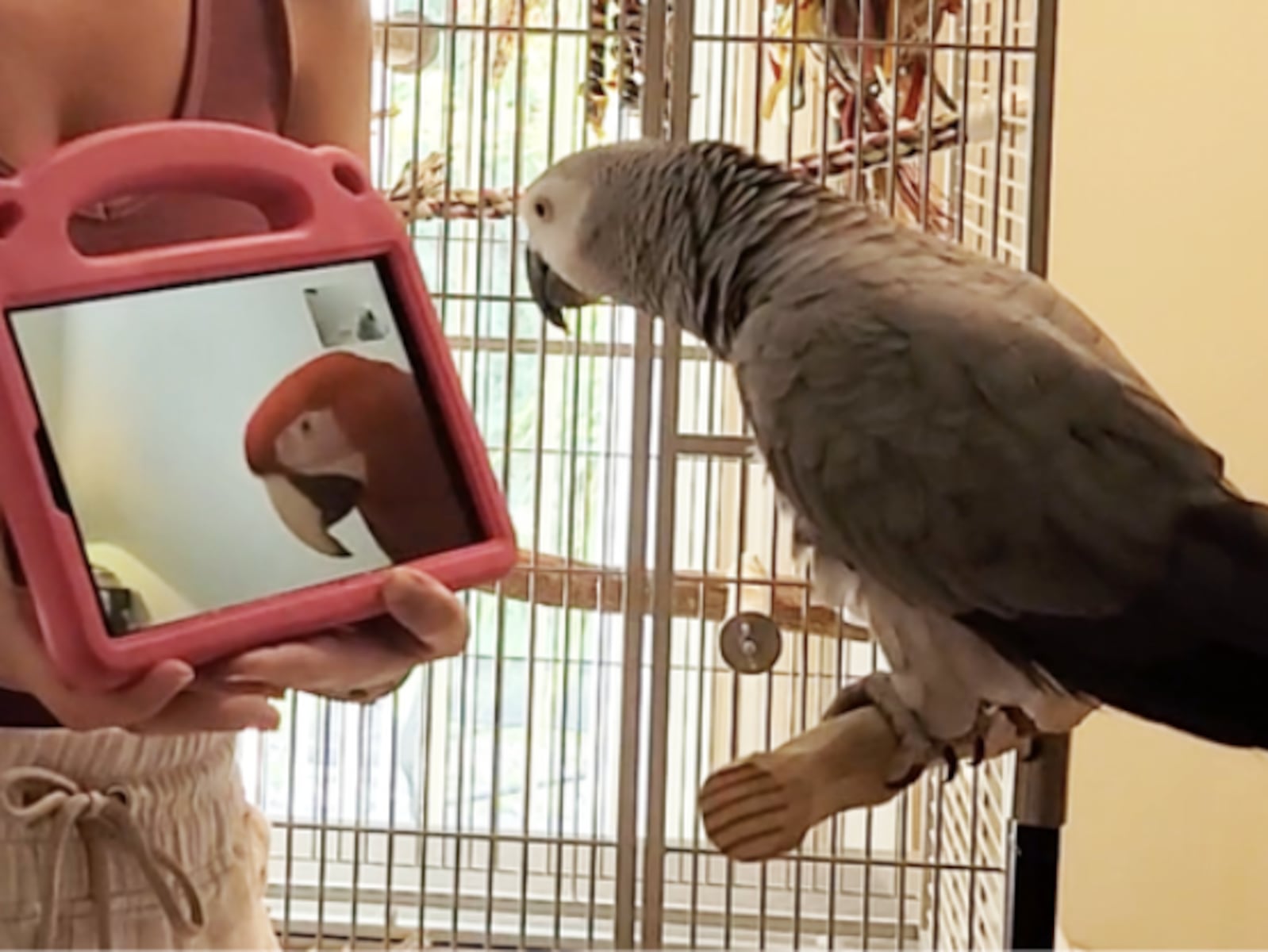A groundbreaking initiative led by researcher Rébecca Kleinberger is reshaping the relationship between technology and animals. The project began in 2019 with a hyacinth macaw named Sampson at the San Diego Zoo. Kleinberger developed an innovative device called the Joy Branch, designed to allow Sampson to interact with music. The device not only let Sampson control the tunes but also attracted visitors to his exhibit, showcasing the potential of technology to empower animals rather than force them to adapt to human environments.
Kleinberger, now an assistant professor at Northeastern University, has dedicated her research to enhancing animal welfare through her Interspecies Technology for Enrichment and Research on Animal Connection and Togetherness (INTERACT) Animal Lab. Her work spans various species and environments, including pets, zoo animals, and wildlife. During her tenure at the Massachusetts Institute of Technology, where she earned her master’s and doctoral degrees, she first engaged with Sampson, setting the stage for her ongoing research.
“We can never really prove that an animal understands what they are doing or that they have control, but we can look into the engagement they have with it,” Kleinberger told MassLive. She emphasized the importance of collaboration with experts in animal behavior to assess whether animals genuinely benefit from these technologies.
Innovative Projects and Collaborations
In the past year, Kleinberger has expanded her initiatives. Last spring, she taught a course on designing technology for animals, involving 16 students from Northeastern, MIT, and Harvard University. Some students continued their work during the summer, deploying technologies at Zoo New England, which includes Franklin Park Zoo in Boston and Stone Zoo in Stoneham.
Additionally, Kleinberger is collaborating with Tandem Vet Care, a technological veterinary clinic, to explore methods for reducing stress in cats during veterinary appointments. While she could not disclose further details, she indicated that findings from this research will be published soon.
Kleinberger’s lab has gained recognition for its playful and engaging projects. In partnership with the University of Glasgow, she conducted a three-month study evaluating how 20 pet parrots interacted with touchscreen games. This research, part of a paper to be published in 2024, aims to enhance animal enrichment by tailoring games to fit the tactile needs of parrots.
Furthermore, another study last year involved 18 pet birds assessing a parrot-to-parrot video calling system. The results were promising, with birds initiating 147 calls, demonstrating their ability to choose specific birds to contact. Caretakers noted behavioral benefits, including improved flying and foraging skills.
A Unique Approach to Animal Welfare
Kleinberger’s INTERACT Animal Lab differentiates itself from similar research facilities by focusing on animal enrichment rather than intelligence testing. “We’re not there to test them. We’re there to try to see how we can improve their life,” she stated. Ethical considerations are paramount, and Kleinberger collaborates exclusively with accredited zoos committed to high animal welfare standards.
Her work also emphasizes public education and collaboration with zookeepers to gain insights into animal needs. Kleinberger acknowledged the challenges inherent in various industries, stating, “There’s always this problem…how do you make sure you’re not just putting a band-aid on or making something more acceptable when it shouldn’t be acceptable?”
Kleinberger advocates for enriching animal lives, highlighting the responsibility humans have in mitigating harm to their natural habitats. She believes that technology can play a crucial role in this endeavor, noting that while there has been a surge in pet technology, many tools remain under-evaluated and primarily designed for human benefit.
“All of the work with Koko the gorilla and sign language and animal translation, I see it as really trying to have the animal go most of the way toward our human languages, and I’m trying to do the inverse,” Kleinberger explained. Her efforts aim to ensure that technology serves animals first, paving the way for a future where technology and animal welfare are aligned.







